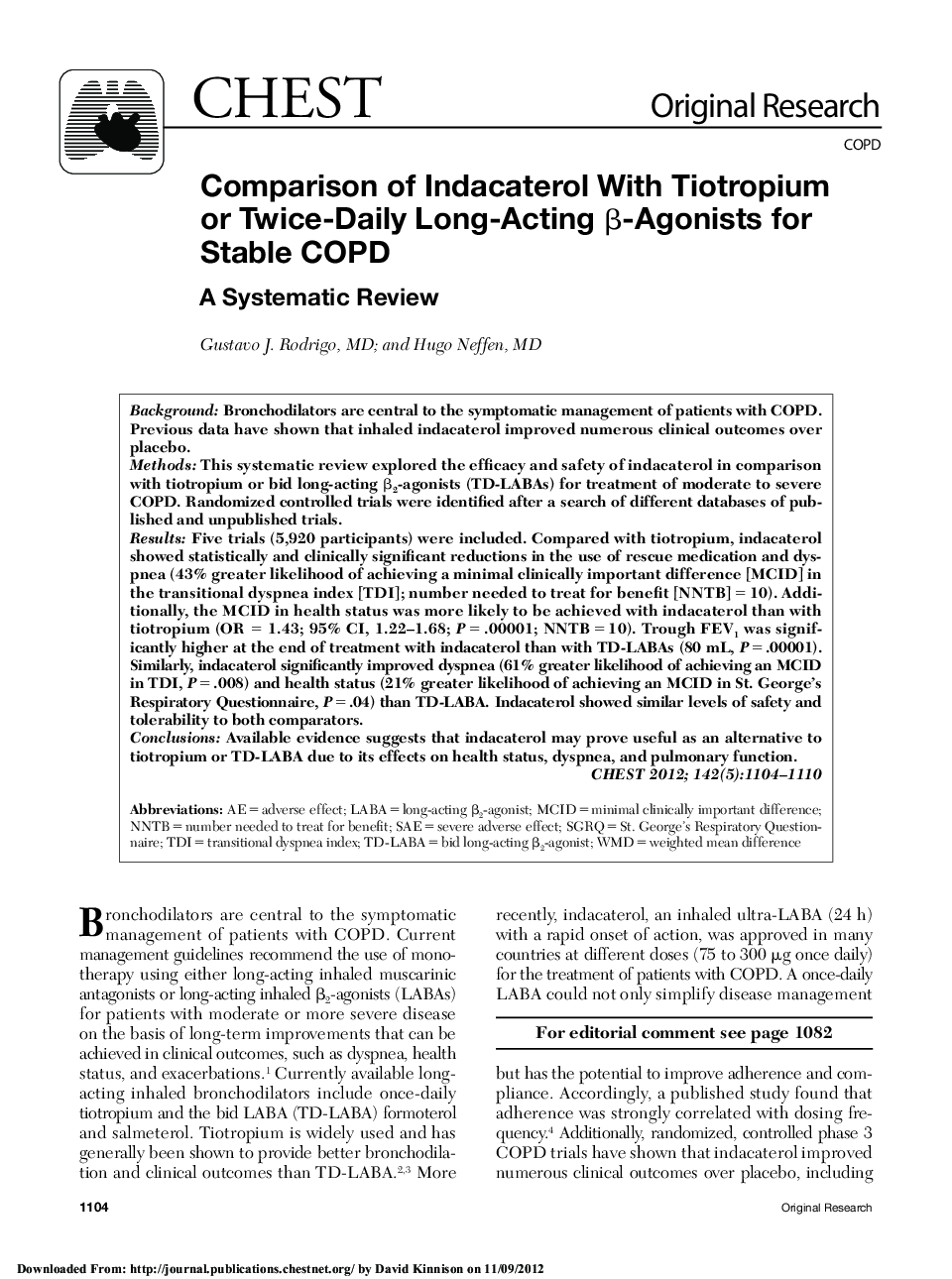| Article ID | Journal | Published Year | Pages | File Type |
|---|---|---|---|---|
| 2900978 | Chest | 2012 | 7 Pages |
BackgroundBronchodilators are central to the symptomatic management of patients with COPD. Previous data have shown that inhaled indacaterol improved numerous clinical outcomes over placebo.MethodsThis systematic review explored the efficacy and safety of indacaterol in comparison with tiotropium or bid long-acting β2-agonists (TD-LABAs) for treatment of moderate to severe COPD. Randomized controlled trials were identified after a search of different databases of published and unpublished trials.ResultsFive trials (5,920 participants) were included. Compared with tiotropium, indacaterol showed statistically and clinically significant reductions in the use of rescue medication and dyspnea (43% greater likelihood of achieving a minimal clinically important difference [MCID] in the transitional dyspnea index [TDI]; number needed to treat for benefit [NNTB] = 10). Additionally, the MCID in health status was more likely to be achieved with indacaterol than with tiotropium (OR = 1.43; 95% CI, 1.22–1.68; P = .00001; NNTB = 10). Trough FEV1 was significantly higher at the end of treatment with indacaterol than with TD-LABAs (80 mL, P = .00001). Similarly, indacaterol significantly improved dyspnea (61% greater likelihood of achieving an MCID in TDI, P = .008) and health status (21% greater likelihood of achieving an MCID in St. George's Respiratory Questionnaire, P = .04) than TD-LABA. Indacaterol showed similar levels of safety and tolerability to both comparators.ConclusionsAvailable evidence suggests that indacaterol may prove useful as an alternative to tiotropium or TD-LABA due to its effects on health status, dyspnea, and pulmonary function.CHEST 2012; 142(5):1104–1110
